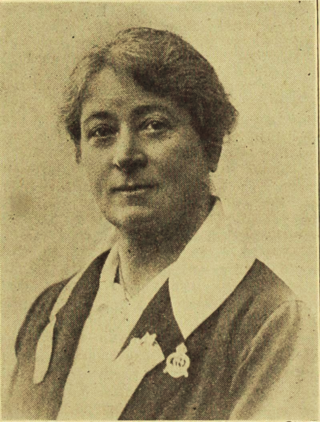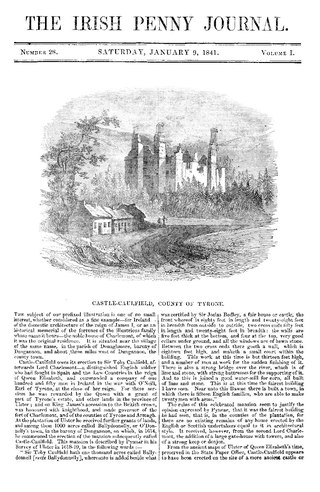Related Research Articles
Fitzpatrick is an Irish surname that most commonly arose as an anglicised version of the Irish patronymic surname Mac Giolla Phádraig "Son of the Devotee of (St.) Patrick".
Donaldson is a Scottish and Irish patronymic surname meaning "son of Donald". It is a simpler Anglicized variant for the name MacDonald. Notable people with the surname include:

MacLeod, McLeod and Macleod are surnames in the English language. The names are anglicised forms of the Scottish Gaelic MacLeòid, meaning "son of Leòd", derived from the Old Norse Liótr ("ugly").
A shearer is someone who shears, such as a cloth shearer, or a sheep shearer. Origins of the name include from near Bergen in Norway 1600s [Sweden of that period] as Skea and Heddle as migrated to The Orkney Islands where the name 'Shearer' is found in Church marriage records of the time and as quite prolific for the overall population. Members of those family Shearer migrated to Australia and New Zealand in the 19th century and represents the highest concentration of nation for the name globally.
Tierney is an Irish surname, and a female given name.

MacLean, also spelt McLean, is a Scottish Gaelic surname, Eóin being a Gaelic form of Johannes (John). The clan surname is an Anglicisation of the Scottish Gaelic "Mac Gille Eathain", a patronymic meaning "son of Gillean". Gillean means "the Servant of [Saint] John [the Baptist]"), named for Gilleathain na Tuaidh, known as "Gillian of the Battleaxe", a famous 5th century warrior.

Brodie can be a given name or a surname of Scottish origin, and a location in Moray, Scotland, its meaning is uncertain; it is not clear if Brodie, as a word, has its origins in the Gaelic or Pictish languages. In 2012 this name was the 53rd most popular boys' name in Scotland. The given name originates from the surname.
Dunn is a surname of English and Scottish origins. It has several different origins. Typically the origin of the surname Dunn is from the Middle English dunn, meaning "dark-coloured"; this name originated as a nickname for one with dark hair. Another origin is from a habitative name, derived from Dun in Angus, Scotland; this place name is derived from the Scottish Gaelic dùn, meaning "fort". Another origin is from the Gaelic donn, meaning "brown".
Paterson is a Scottish and Irish surname meaning "Father's son" or "son of Patrick". In Connacht, and Ulster, the name is considered to be an Anglicised form of the Irish language surname Ó Casáin. Paterson is rarely used as a given name. There are other spellings, including Patterson. Notable people with the surname include:
Tait is a Scottish surname which means 'pleasure' or 'delight'. The origins of the name can be traced back as far as 1100.
Kerr is an English and Scottish surname, a topographic name for someone who lived by a marsh or swampy woodland. Middle English kerr means ‘brushwood wet ground.’ See Clan Kerr for the Scottish origins.
Merchant is a surname of Old French origin, meaning a merchant or trader, and was originally given as an occupational name to a buyer or seller of goods. It is shared by the following people:
Rowland is an English surname.
Hickey is a common surname of Irish origin. The original form Ó hÍceadha, which is still used in Ireland, was one of the Irish medical families in Gaelic times. Notable people with the surname include:
Bowen is a Celtic surname representing two separate Celtic ethnicities, the Welsh ab Owain meaning "son of Owen" and the Irish Ó Buadhacháin meaning "descendant of Bohan". The Bowen lineage can be traced back to Llwyngwair in the 11th century, near Nevern in Pembrokeshire. The Bowen surname was adopted in 1424. There are seven Bowen crests and the Bowen/Owen family group share a tartan. The Bowen/Bowens surnames are more commonly found in southern Wales, while the Owen/Owens surnames are more commonly found in northern Wales.
Cullen is an Irish surname. It is an Anglicised form of Gaelic Ó Cuileáin 'descendant of Cuileán', a name meaning 'wolfhound whelp', 'young hound'. It is also considered by some to mean the 'handsome one'. The Uí Cuileáin of County Tyrone were erenaghs of Clogher. According to historian C. Thomas Cairney, the O'Cullanes were one of the chiefly families of the Uí Fidgenti who were a tribe of the Erainn who were the second wave of Celts to settle in Ireland between about 500 and 100 BC.

Donnelly is an Irish surname. Also used as: O’Donnelly or Donley. It is derived from the Gaelic Ó Donnghaile meaning 'descendant of Donnghal', a given name composed of the elements donn and gal ('valour'). O'Donnelly was historically of the Northern Uí Néill's Cenél nEoghain, descended from Donnghal, the great-grandson of Domhnall, King of Ailech.
Sheridan is an Irish surname. It is derived from the Irish Gaelic Ó Sirideáin 'descendant of Sirideáin', a given name meaning 'to seek'. Originating in County Longford, the Sheridans were erenaghs of Granard, but in the County Cavan served the O'Reillys.
Houston is a surname of Scottish origin, from the place called Houston, Renfrewshire in the west central Lowlands of Scotland. In Old English, the name Houston, meant the settlement belonging to Hugh.
Proctor is an English occupational surname, originally meaning 'steward', derived from Latin procurare.